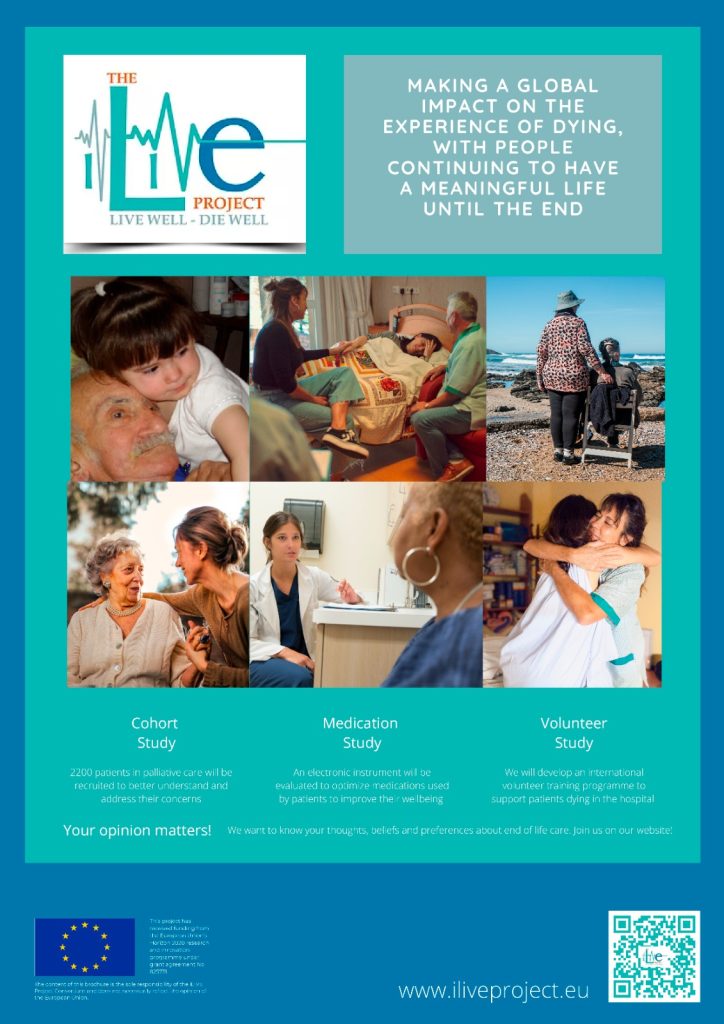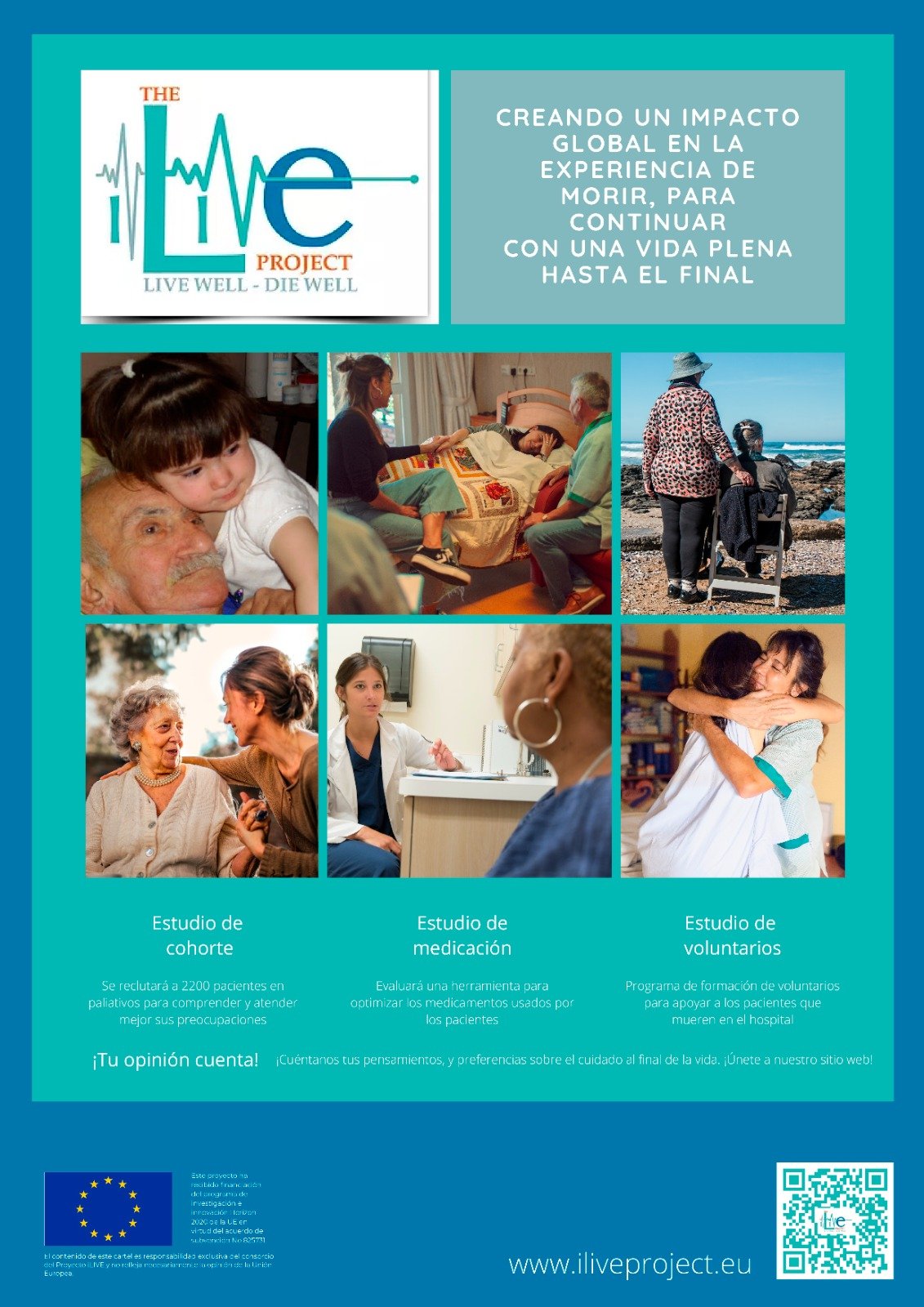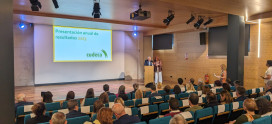More than 70% of palliative care patients would like to see death talked about more openly in society
The European Day of Palliative Care was celebrated on June 15, 2023. This day is an opportunity to raise awareness of the importance of Palliative Care and to highlight the need to develop it, as it remains the great unknown for many people.
Talking about death and dying is still a taboo in most societies, but being open about the end of life would be beneficial, especially for those who are facing this moment of their life or for their relatives. In fact, more than 70% of palliative care patients would like to see death talked about more openly in society, according to the first preliminary results of the iLIVE Project "live well, die well", an international study that has interviewed hundreds of patients in the last phase of their life.
The Hospice Cudeca Foundation is participating in this project, funded by the European Commission, which is entering the last phase of its research on palliative care, and will release the final results in the coming months. One of the main objectives of the study is to better understand the needs and concerns of patients and families in the last phase of life. To this end, a cohort study has interviewed more than 1,200 patients and 550 relatives in Argentina, Germany, Iceland, the Netherlands, New Zealand, Norway, Slovenia, Spain, Sweden, Switzerland, the United Kingdom and the United Kingdom.
In the majority of cases, almost 80%, the patients included in the study had a diagnosis of cancer, but other conditions included cardiovascular or pulmonary disease, among others.
The percentage of patients who would like to talk openly about death was higher among those who were alone than among those living with a partner or in an institution, but they are in the majority in all cases. Talking openly about death and dying is also considered beneficial by family members, by a very similar percentage.
The importance of family support
Among these patients, family relationships are the main source of strength, according to these preliminary results so far. Friends and children are also among the main sources of strength. But family is also the main concern for them, even more so than pain or the overall health situation, which are by far the three most important concerns of patients.
The European Day of Palliative Care, under the motto "one voice, one vision in palliative care", promotes palliative care as a human right, a moral imperative and a global ethical responsibility. Palliative care is for people of all ages (from prenatal palliative care to old age) and is relevant to all illnesses at all stages, not just at the end of life.
Through the iLIVE project, people with advanced and terminal illnesses have been given a direct voice, learning first-hand about their wishes and expectations. The final results of the iLIVE project will contribute to giving voice to a vision that responds to the needs of patients and families at the end of life.
Through the iLIVE project, people with advanced illnesses in the last months of their lives have been given a voice, and their true wishes and expectations have been heard first-hand. The final results of the iLIVE project will contribute, thanks to the real protagonists, to achieving a vision that truly responds to the needs of patients and their families.





